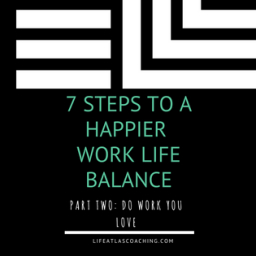
I’m commonly asked by potential clients who are struggling with stress whether counselling, therapy or coaching would be the best solution to help them reduce their stress.
It’s great news that there’s such choice of help available to help you reduce your stress and get back into the driving-seat of your own life again.
But working through the options available can seem like a minefield – particularly when you’re stressed and your brain is not working as clearly and logically as it could.
So if you’re looking at getting some help to deal with stress, how do you decide whether coaching, rather than counselling or therapy, is going to be a suitable stress management solution for you?
Stress is the feeling of being under too much mental or emotional pressure. And it’s a widespread issue – so widespread that in 2018 the Mental Health Foundation found in a survey that almost three quarters of adults in the UK felt so stressed at some point over the previous year that they felt overwhelmed or unable to cope.
Stress is a broadly used term, and what one person means when they say they are stressed, may not always be the same as another.
For some it is the feeling of being anxious and emotionally overwhelmed which is most typically what they mean.
For others, the sense of being unable to cope with the things life is throwing at them, and being physically and emotionally tired as a result may more accurately describe their stress.
Our stress-response is triggered when our brain receives and interprets information that tells it we may not be safe. Typical symptoms, which are often signs of stress, include:
Feeling overwhelmed, or out of control
Not sleeping well
Feeling anxious or worried a lot of the time
Not eating well, maybe having lost your appetite
Finding it hard to relax or switch off
Finding it difficult to concentrate
Having difficulty making decisions or thinking clearly
Aches and pains, particularly in your neck and shoulders
The short answer, is yes.
Ultimately, your stress is a result of a particular circumstance or event (or set of circumstances or events), combined with your thoughts and reactions to those circumstances.
And whether you choose counselling, therapy or coaching to help you deal with your stress, each will help you explore, to one degree or another, both the situations which are at the source of your stress, and your thoughts about them. This helps you establish and tackle the root causes of your stress so you find long-lasting, transformational solutions rather than sticking-plasters that treat the symptoms only.
But there are some key possible differences in the nature of your stress, or how you are experiencing your stress which, if you’re aware of them, may help guide you in finding the best kind of help for you.
Coaching is not likely to be the best stress solution for you if:
- you know that your stress has been triggered by a specific event (particularly if it is something traumatic), whether that event is recent or not – especially if you are feeling highly emotional about that
- you feel that dealing with your stress and finding a solution to your stress means tackling something that’s emotionally-driven – possibly relating to family relationships or past experiences
- You have depression or generalised anxiety, which you are aware is (or may be) a factor in the stress you are experiencing
- You are suffering with an addiction that has come about as a means of coping with your stress
- You’re feeling hopeless about your situation or don’t really believe there’s anything you can do to change the situation, and are more concerned with being able to better cope with it than change it
In these situations, an appropriate form of therapy or counselling is likely to be a better fit for helping you deal with your stress and anxiety.
Taking this approach will enable you to process your thoughts about the things that have happened, and help you break out of negative thought patterns and find new ways of looking at things, so you can release the stress you are holding and move forward.
On the other hand, stress coaching is a great way of helping you to manage and reduce your stress if:
- Your stress is current and based in your present situation (whether short term or long term, continuous or coming and going in phases), yet not rooted in or triggered by a specific event
- You feel your stress could be reduced if you changed your habits, the things you do or how you do them…even if you can’t work out what or how you might be able to do that
- Your stress relates to your work, to long working hours or pressure being placed on you at work
- Your stress is rooted in not feeling able to cope as a result of too big or too many conflicting demands, pressures or priorities
- Your stress is being caused by a big or difficult decision you need to make or an uncertainty about what to do about something and fear of making the wrong choice
- While your stress may be leaving you feeling filled with worry at times, you wouldn’t necessarily describe yourself as an anxious person
- You feel ready and willing to make changes to what you do or how you think about things, if that will help you deal with your stress and gain a feeling of being in control and able to relax (and sleep!) again.

Coaches are experts in helping you make changes. Not just sticking-plaster changes, but transformational changes. Changes to what you do, and to how you see things. Because the link between how we feel, what we think and what we do is established, and in stress situations can become a vicious circle that we have to find ways to break into.
When it comes to dealing with your stress, coaching can help you identify and make changes in a number of ways. Above all else, coaching helps you gain new awareness about your situation, which you can then use in ways that will reduce your stress levels.
The kinds of things we might do in stress coaching that help you deal with your stress and eradicate it are:
- Learning more about stress and how it works physically and emotionally, and considering how you can use that knowledge toput in place changes that will help reduce the
- Exploring the impacts that stress has on you personally and what exactly you would like to change
- Exploring your stressors (the things, circumstances and situations that trigger your stress) and considering what and how you might be able to accept, avoid or amend those to help your stress
- Exploring the thought patterns, fears and worries you have about the situations and circumstances that are triggering your stress, and finding new ways of looking at them to establish more helpful thoughts and approaches, based in evidence you really believe in
- Learning breathing and grounding techniques that help you manage particular moments of stress, and re-set your stress response.
- Developing new boundaries and habits that enable you to switch-off and relax
- Working out an order of priorities when there are many things for you to do which you consider both important and things you want to do
- Developing strategies for doing things in new ways that you’ll be supported to try and evaluate until you find the changes that work for you
- Exploring what is within and outside your control to change, making decisions about what you are and are not willing to change, and supporting you to accept the things you will not or cannot change
- Helping you develop plans and take action where you are considering making bigger changes that may help with your stress, yet may also require bravery, confidence and involve taking some risks
- Developing the ability to do things differently where your own behaviours are adding to your stress and you don’t know how to change that – (common examples might be learning how to say no to people, how to have a difficult conversation with someone, how to delegate more easily or how to manage your time more effectively)
If you’re ready to make some changes and ditch the stress for good, I’d love to talk to you about some one-to-one stress management coaching. Although it varies a little from person to person, we’ll probably work together for around six months, once a month – this can be in person or online using Zoom, depending on your location.
If you’d like to find out more about me and my own story or about working with me, please take a look around, and get in touch if you think we might be a good fit.
Or, if you don’t feel ready to talk yet, sign up to my No Stress Success Gazette – it’s a once a month email newsletter with bite-sized, practical sources of help, inspiration, guidance and information to help you make changes that may reduce your stress and take you closer to the kind of relaxed work life balance you want.
Or, if your stress is firmly rooted in a maelstrom of conflicting demands that’s leaving you with a lack of work life balance, utter exhaustion and no time to yourself, you could try downloading my Achieving the Balancing Act workbook, to work through a plan for making some changes that will give you more time and space to think and to regain some energy.
I’m Jo Lee, the No Stress Success Coach. I help ambitious people to enjoy their work and home time more by achieving more success with the things they want, without feeling stressed. So they feel balanced, not burned out.
I offer face to face stress management coaching, work life balance coaching and career success coaching in Leicestershire, Derbyshire, Staffordshire and Birmingham and online coaching across the UK. If anything in this blog post resonates with you, and you’d like to find out more about how coaching works to help you manage stress or what coaching with me might be like, please get in touch for an informal chat or to arrange a free initial consultation.




